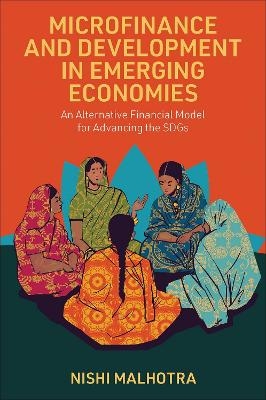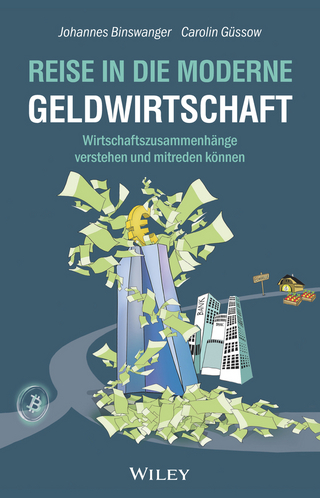
Microfinance and Development in Emerging Economies
An Alternative Financial Model for Advancing the SDGs
Seiten
2023
Emerald Publishing Limited (Verlag)
978-1-83753-827-0 (ISBN)
Emerald Publishing Limited (Verlag)
978-1-83753-827-0 (ISBN)
Using India as a case study, Microfinance and Development in Emerging Economies builds and evidences an argument that microfinance and group lending are the best way to combat and address the economic exclusion that blights so many across the Global South.
Globally, 1.7 billion people live in poverty and are unable to access financial services. They do not have physical collateral and creditors are reluctant to invest in them. Yet in India, microfinance is being used to reduce poverty, empower women, and boost development.
In Microfinance and Development in Emerging Economies, Nishi Malhotra argues that the financial services provided to low-income groups or individuals through microfinance and group lending outside the traditional financial system are the best way to combat these problems and address the economic exclusion that blights so many. Using India as a case study, Malhotra examines the Indian government’s use of various social welfare programmes to increase both financial literacy and social equality and ultimately achieve sustainable development. Suitable for bankers, teachers, policymakers, and students, this book clearly identifies the practical and theoretical implications of this alternative microfinance model.
Globally, 1.7 billion people live in poverty and are unable to access financial services. They do not have physical collateral and creditors are reluctant to invest in them. Yet in India, microfinance is being used to reduce poverty, empower women, and boost development.
In Microfinance and Development in Emerging Economies, Nishi Malhotra argues that the financial services provided to low-income groups or individuals through microfinance and group lending outside the traditional financial system are the best way to combat these problems and address the economic exclusion that blights so many. Using India as a case study, Malhotra examines the Indian government’s use of various social welfare programmes to increase both financial literacy and social equality and ultimately achieve sustainable development. Suitable for bankers, teachers, policymakers, and students, this book clearly identifies the practical and theoretical implications of this alternative microfinance model.
Nishi Malhotra is Assistant Professor at OP Jindal Global University and received her B Com (Hons) from Shri Ram College of Commerce and her MBA from the Management Development Institute Gurgaon. She previously worked in finance and accounting for twelve years.
Chapter 1. Poverty in Emerging Economies;
Chapter 2. Social Capital as a Key to Sharing Prosperity;
Chapter 3. Inclusive Financial System in India;
Chapter 4. Digital Financial System;
Chapter 5. Cashless Financial Systems;
Chapter 6. Priority in Inclusive Finance;
Chapter 7. Ensuring Justice and Human Rights;
Chapter 8. Role of Government to Ensure Economic & Social Welfare
| Erscheinungsdatum | 26.08.2023 |
|---|---|
| Verlagsort | Bingley |
| Sprache | englisch |
| Maße | 152 x 229 mm |
| Gewicht | 458 g |
| Themenwelt | Sozialwissenschaften ► Soziologie |
| Wirtschaft ► Volkswirtschaftslehre ► Mikroökonomie | |
| ISBN-10 | 1-83753-827-1 / 1837538271 |
| ISBN-13 | 978-1-83753-827-0 / 9781837538270 |
| Zustand | Neuware |
| Haben Sie eine Frage zum Produkt? |
Mehr entdecken
aus dem Bereich
aus dem Bereich
Wirtschaftszusammenhänge verstehen und mitreden können
Buch | Softcover (2023)
Wiley-VCH (Verlag)
19,99 €
die psychologischen Determinanten menschlicher Entscheidungen
Buch | Softcover (2024)
Kohlhammer (Verlag)
39,00 €


